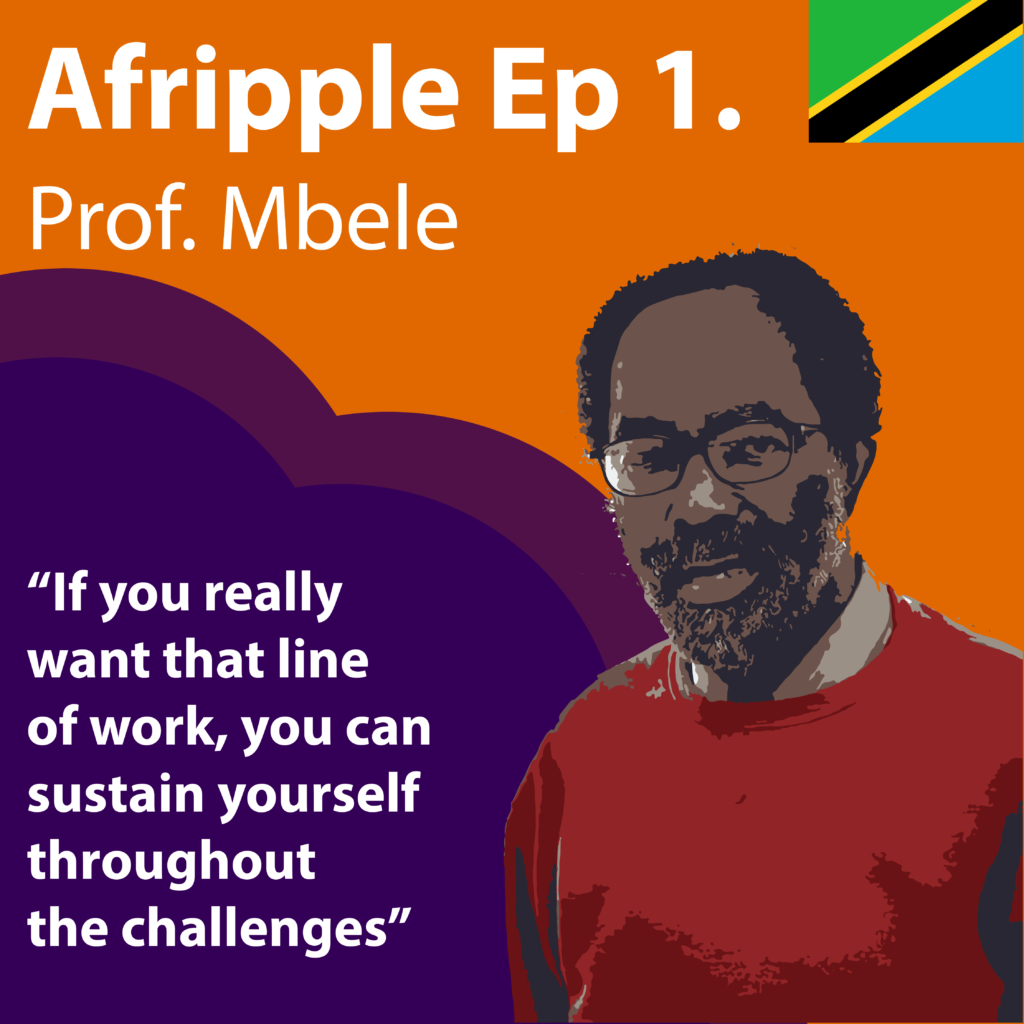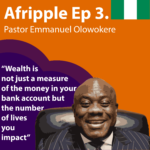
Conversation Summary
I got to speak to Professor Joseph Mbele last year.
He teaches literature, folklore and writing at St. Olaf college. He has written and published multiple books, he’s a well respected speaker and an amazing storyteller (speaking from first hand experience).
But before all of this, he was a little boy growing up in a village in Tanzania. He used to raise goats and cows on a small farm. Although his father was not educated past the elementary school level, he was passionate that Joseph should get a proper education as the oldest son in the family.
On the day he left the village to finally go to boarding school, he sat on the back of the truck that was taking him out. His father when saying goodbye said some final words of encouragement “You can go anywhere with education, even America ”. It’s something he remembers till today. The context to this was that for them in this village at the time America was like “at the ends of the world”, meaning a far off place one can’t imagine.
Now there was a lot to get from this interview so you can listen to the interview audio for the full picture but I’ll give some main points:
For The Love of Teaching
Since he was younger the only thing the professor wanted to do was teach! If he could have a classroom of students, that was all he needed. He could be in Tanzania (which he was), in America (which he is), or even in China (which he wouldn’t mind). He just wanted to teach. In his words, he felt like it was his calling, the thing that God wanted him to do.
But with that comes a certain level of responsibility. The thing he has been most afraid of in his teaching is accidentally leading kids astray. That is his biggest fear. He says that students have problems, anxiety, family issues, and all sorts of things that come with them when they come into the classroom. As a teacher, he must be patient, he must be empathetic, and he must try his best to be fair. It’s a test he goes through every day, and in it, he has grown and become more confident.
He got into folklore from his studies, he had a very inspiring teacher from Lesotho who taught oral literature. He got interested in learning about folklore and started studying the subject and history even outside the continent. He wanted to learn all he could and received many academic accolades for his work. His work as a storyteller happened by accident, he was giving talks about the traditions of storytelling, coming in as a scholar, but was introduced as a storyteller himself and ended up taking on the title. A word of advice, “We might not know fully what our capabilities are”.
For the Love of Writing
He gave a couple of stories about writing but the one that surprised me was this one. Now from the previous section, we know that he had a love for folklore. Well, it turns out that his love ran so deep that he started collecting stories from all over (including getting stories from his father). He collected these stories and got them translated into English for his book.
It took him 23 years! Of course, this was not continued work every day and every hour. But to be working on this for that long, showed how much love he had for the craft. In his words, it was a “labor of love”. He said, “I wanted to do this thing because I believed in it, to record as faithfully as I could the traditions of my people.”
“That is all I wanted to do.” When it comes to writing he says one should write about one should try their best to write about their own experiences and be genuine and any thoughts of will it sell? Or such should not be of concern, the important part is you have something to say and writing it is laying it to rest, whether it is popular or not should not be a concern.
For The Love of Serving
Ever since he joined St Olaf college in 1991, he found himself advising study abroad, giving people advice on how to travel to Africa. Many colleges did such programs and he would be part of reading the reports of students who would write after the program detailing their experiences, and it would be his job to give the context and explain what they meant. He found himself almost being a cultural interpreter explaining to the Americans for example that many Africans value relationships over time, so they may be late because they got caught up catching up with an uncle for over an hour. And on the other, he would explain to Africans that 8 am means 8 am.
One day he was approached by a couple that asked him to write a short 3-page document to give them guidance when traveling to Africa. What started as 3 pages turned into a rough manuscript. And what was meant to be shared with just the couple ended up spreading to some surrounding churches for their trips. Embarrassed by the roughness of the manuscript, he took a sabbatical to turn the manuscript into a full-fledged book, which he self-published. The best thing about it is when people have questions he can just refer them to the book, saving him a lot of time and energy.
“I was able to pinpoint the issues because I had spent all those years answering people’s questions.” And this is what made the book so strong and successful, the fact that it served a need and met it so intently. For the professor, it’s important that anything he does and knows he can do he does his best at, and if he can’t he will say so.
The Professor dropped so many bits of wisdom throughout the conversation so please listen to the audio for the full thing, but that final bit of advice he said that I want to share here is this:
When choosing work it’s important to follow your heart and do what you genuinely want to do. Because if you really want that line of work, you can sustain yourself throughout the challenges

